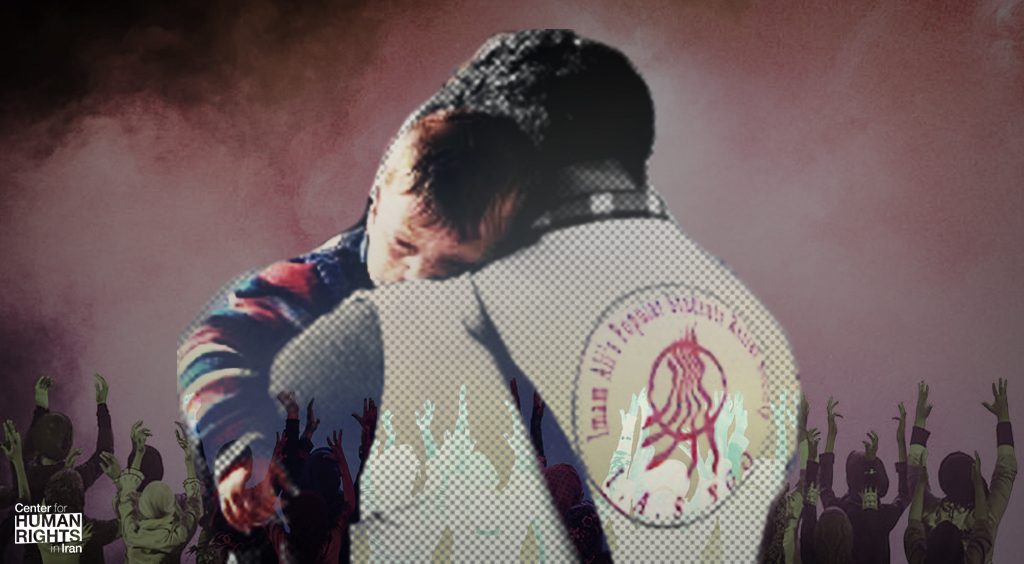Security Establishment and Judiciary Collude in Disbandment of Iran’s Largest NGO
 Imam Ali Popular Students Relief Society Shuttered after Tehran Court Grants Motion by Interior Ministry
Imam Ali Popular Students Relief Society Shuttered after Tehran Court Grants Motion by Interior Ministry
March 4, 2021—An Interior Ministry motion to disband the Imam Ali Popular Students Relief Society (IAPSRS) was granted by a court in Tehran on March 3, 2021.
The disbandment of Iran’s largest independent NGO, and the only one in the country holding consultative status with the United Nations, is a clear indication of interference into the activities of autonomous NGOs by the security establishment, and the collusion of the judiciary in that interference.
The action follows the arrest and detention of top members of the Imam Ali Society, and their eventual release on bail set at outrageously high levels, which is another indication of the role of the security forces in exerting pressure through the courts on the NGO.
“The ruling to disband the Imam Ali Society is a continuation of the systematic state policy of using the courts to do the bidding of the security agencies and silence independent voices in society,” said Hadi Ghaemi, executive director Center for Human Rights in Iran (CHRI).
Ghaemi added: “At a time when Iranian society is facing extraordinarily difficult social and economic conditions, it is imperative that independent NGOs such as the Imam Ali Society, which provide critical support to society, are allowed to exist.”
CHRI condemns the ruling to disband the Imam Ali Society, and urges the authorities in Iran to cease the fabricated prosecutions of NGOs and instead create an environment in which they can safely carry out their activities.
Imam Ali Society, Under Growing Pressure, Faced Threats, Arrests and High Bails
The executive director of the Imam Ali Society, Zahra Rahimi, had disclosed in June 2020 that the Interior Ministry, which is under the authority of the Rouhani administration, was demanding fundamental changes to its internal management structure—and if the NGO refused, it would seek its disbandment.
Agents from the Islamic Revolutionary Guard Corps’ (IRGC) Intelligence Organization arrested the founder of the Imam Ali Society, Sharmin Meymandinejad, along with colleagues Morteza Kaymanesh and Katayoun Afrazeh on June 21, 2020.
Meymandinejad, who is married to Rahimi, was accused of “insulting the Supreme Leader” while Kaymanesh and Afrazeh were charged with “acting against national security.”
Afrazeh and Kaymanesh were released on an undisclosed amount of bail on July 21 and July 22 respectively, but Meymandinejad was held for 129 days until his release on October 27, 2020, with bail set at two billion tomans ($473,934 USD at the official rate).
Rahimi was also detained on September 5, 2020, and released three days later on bail, which according to some reports was set at 500 million tomans ($118,483 USD).
Long-established NGOs Increasingly Under Attack in Iran
Iranian officials have tried various methods to interrupt the work of long-established NGOs.
One method has been the creation of parallel and seemingly-independent organizations, such as Jamiat Emam Rezaeeha, or the Imam Reza Society, working alongside the Imam Ali Society.
The Imam Reza Society is led by Mohammad Hassan Yekta, the former commander of the IRGC’s Baghiatollah Headquarters for Cultural and Social Affairs, and a former senior adviser to Judiciary Chief Ebrahim Raisi, when the latter headed the Astan Quds religious-industrial conglomerate (from 2016-2019).
A similar move was made against the Iranian Bar Association, when the judiciary created a parallel body called the Legal Advice Center, although it lacks the credibility enjoyed by its independent competitor.
On its webpage, the Imam Ali Society describes itself as an “international, non-governmental organization which started its activities in 1999. The NGO earned special consultative status with the Economic and Social Council of the United Nations in 2010 and general consultative status in 2018.”
It added: “[Imam Ali Society] provides a wide range of humanitarian services in Iran, Iraq, Syria and Afghanistan. This community aims to create a world based on peace and justice and is majorly concerned with the vulnerable groups especially the children. To this purpose, it supports 6100 children and 700 women….”
Read this article in Persian






